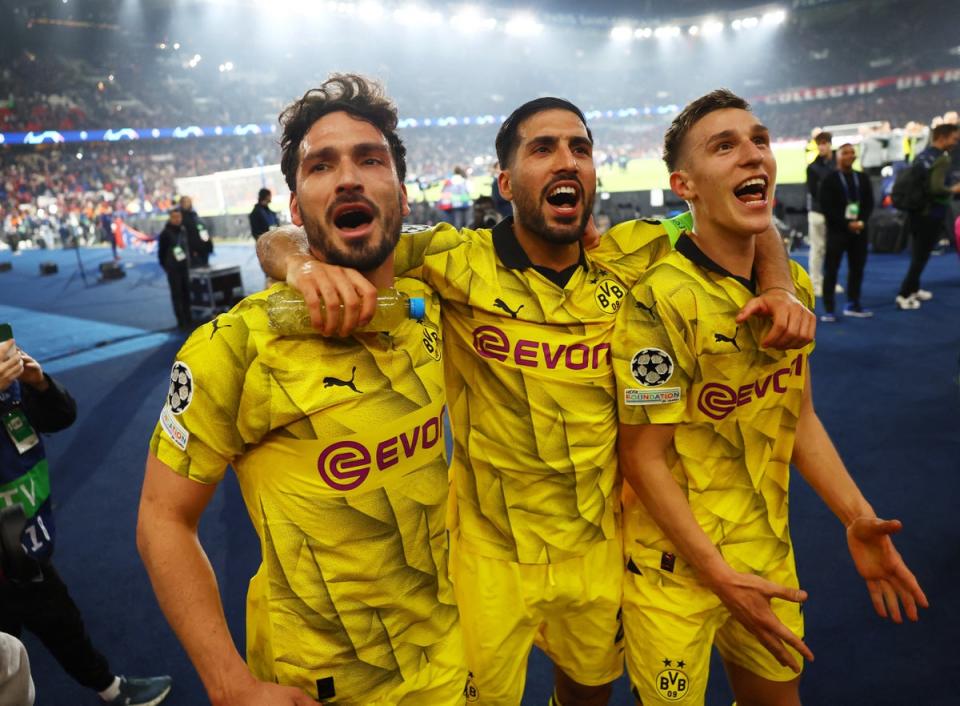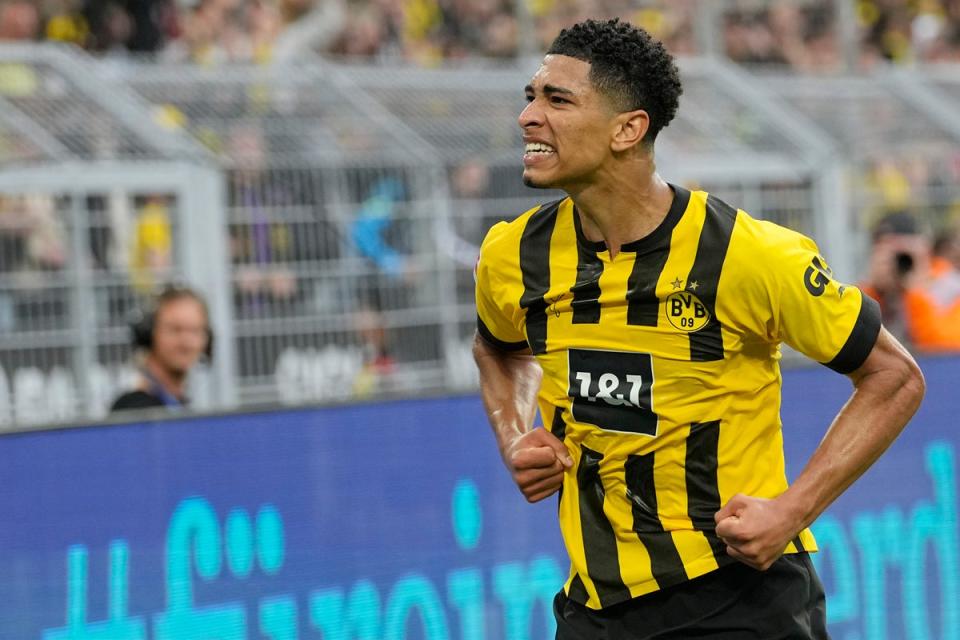The transfer market problem that led Borussia Dortmund to the Champions League final
Back in January, when Borussia Dortmund were just hoping to reach the Champions League quarter-finals rather than the final, they attempted to bolster their season by moving for a series of young English-based players. You can imagine the profile, which has always been to source burgeoning talent with potential: the equivalent of a 2017 Jadon Sancho. Chelsea’s squad was of particular interest.
In other words, vintage Dortmund signings. Except, this time, the pitch that was successfully made to Jude Bellingham in 2020 didn’t work. Dortmund’s offer of more elite game-time to younger players is no longer so attractive. The evolution of both the transfer market and football tactics has meant that clubs like Manchester City and – yes – Real Madrid specifically aim for that profile of player. The omnipresence of pressing has ensured that even middle-of-the-table clubs need more of their younger talent to do the running.
In short, Dortmund have lost their unique selling point. The world around them has changed. This is now forcing Dortmund to change, in a move that many around the club feel has been too long coming.
A new club hierarchy is charged with defining a new identity. It is what makes this return to a Champions League final all the more unlikely since there is a disconnect running right through the institution. Dortmund’s worst team in a decade has reached the highest possible stage. A club that used to perpetually think about the future finally has a moment in the present again but amid widespread debate about what comes next. One of the youngest squads in the Champions League is now one of the oldest. They don’t even press in the way they used to.
And yet one core element of the club’s modern identity hasn’t changed. Dortmund are very clear underdogs going into this Champions League final, once again seeking to defy greater powers. They have been cast as saviours of the competition, in how they are fan-owned and have already knocked out new money in Qatar’s Paris Saint-Germain, and next face the old European establishment in Real Madrid. The Champions League could certainly do with something different. Nobody with an annual revenue of less than €460m (£391m) has won the Champions League since 2013, and that was when Bayern Munich beat Dortmund, with their figures only so low due to inflation. Dortmund’s revenue last season was €420m.
Looked at from that perspective, it should almost be an absurdity that they can be considered underdogs to this degree. If that’s the case for Dortmund, what does it say for the rest of the game? How narrow is the top of the pyramid? Dortmund have actually been one of the primary beneficiaries of that skewed modern power structure. A structure directly influenced by their opponents on Saturday.

When Michel Platini was forced to step down as Uefa president in 2016, Real Madrid and Bayern Munich used the power vacuum to push through reforms where more money went to clubs for “historic” Champions League performances over 10 years. Essentially “football royalties”, entrenching those regularly in the competition. The threat used to leverage this was the Super League. Since 2018, when these changes came into action, Dortmund’s €210m received was more than all but nine clubs. Such financial power was one reason they were invited into the Super League.
Dortmund immediately rejected that invitation, in the knowledge their fans would never stand for it. Along the same lines, the supporters recognise how such riches have become a curse. That revenue has contributed to figures where Dortmund have consistently had the 11th or 12th highest revenue in Europe since 2012, which was when Jurgen Klopp’s first great team started this era. The only season since then that has deviated from that was 2021-22, when they were 13th. It is striking how consistent it has been.
While that might be a situation that is desirable for all but about 12 clubs in the whole game, it has directly led to this strange stasis.
Dortmund became so fixed in place as a club that they have stagnated. Always being Europe’s 12th-ranked club meant they were always Germany’s second-place team. While Dortmund were wealthy, they were only ever going to be half as wealthy as Bayern Munich. This meant they had to adapt, specifically aiming for this younger profile of player. The idea was that they would eventually evolve into a formidable team again but frequent big sales consistently worked against that. Dortmund looked at so many investments for the future that they stopped playing for now.

It became so difficult to win that they institutionalised failing to win. They were not expected to win the Bundesliga, so stopped striving to. Some believe this absence of a truly exacting mindset manifested in moments like at the end of the 2022-23 season, when Edin Terzic’s side somehow lost the title on the last day. There is certainly a widespread view around the club that they became far too comfortable in finishing second and reaching the Champions League every season. Through that, they were great beneficiaries of the modern system but also great victims, left in this odd purgatory. Complacency eventually led to complications, as often happens. The policy defined by outgoing chief executive Hans-Joachim Watzke lost its way.
This has strengthened the symbolism of the club reaching a third Champions League final in its history, at the end of this era. No longer able to sign the next Bellingham or Erling Haaland, Dortmund have instead been forced down different paths. There has been a much greater pragmatism to their business, as can be seen in the signings of players such as Niclas Fullkrug and Marcel Sabitzer.
Dortmund have similarly gone for Sancho 2024 rather than his equivalent from 2017. Their squad now looks like something out of Serie A in the early 2010s, where top-heavy clubs resorted to compromise deals, or players available on loans or frees. The recent recruitment has seen the average age of the squad shoot up, from 26 last season to 28 this season. That is a stark rise from the peak of the previous era back in 2012, when Klopp had the second youngest squad in the Champions League, after Ajax.

That continued into last season when they still had the sixth youngest squad. The sale of Bellingham to Saturday’s opponents obviously raised that but it might well represent the future for many recent buy-young-sell-high clubs. They can’t operate in that space to the same degree any more. This is the way the market is going, potentially leaving a gap for those players in their late twenties and early thirties. That adds further symbolism to how this team has done it on so many nights in this Champions League. They weren’t waiting for the future. So many of these players have to perform now. They’ve seized the moment, in the way superior Dortmund sides haven’t. Even Terzic’s tactics play into this, given how they’re about adapting to the occasion.
Luck has played its part. That can’t be ignored. They were on the more forgiving side of the draw and could have been knocked out by Atletico Madrid. They probably should have been knocked out by Paris Saint-Germain, who missed so many chances.
Now, they’re expected to lose to Real Madrid. At the very least, no one is looking past that. Dortmund, for the first time in a long time, are only looking to the moment. It could yet go down in history.

 Yahoo Sport
Yahoo Sport 



































































